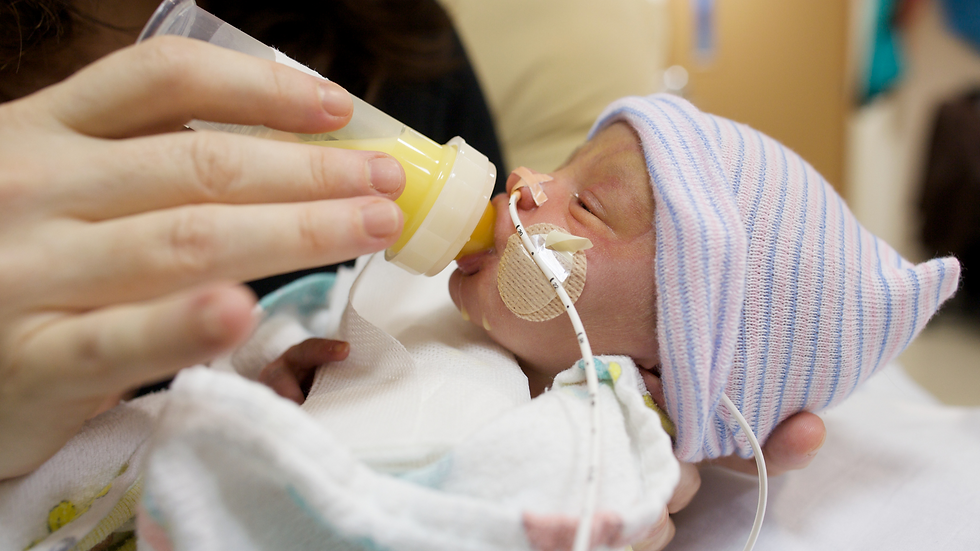What is Necrotising Enterocolitis?
- Kate Tauber
- Jul 31, 2025
- 1 min read
Necrotising enterocolitis (NEC) is a serious and potentially life-threatening condition that affects the intestines of newborn infants, most commonly those who are born prematurely.
What happens in NEC?
In NEC, portions of the intestinal tissue become inflamed, and this can lead to:
Tissue death (necrosis) in the intestinal wall
Perforation (a hole) forming in the intestine
Bacteria leaking into the abdomen and bloodstream, leading to sepsis
Who is at risk?
Premature infants, especially those born before 32 weeks of gestation
Babies with very low birth weight (<1500 grams)
Infants with congenital heart disease
Symptoms of NEC
Swollen or tender belly
Feeding intolerance or vomiting (especially green bile)
Bloody stools
Temperature instability
Lethargy or apnea (pauses in breathing)
Diagnosis and Treatment
Diagnosed with abdominal X-rays, blood tests, and clinical signs
Treatment depends on severity and may include:
Stopping feedings temporarily
IV fluids and antibiotics
Surgery, if there is a perforation or dead bowel tissue
Prevention
Breast milk feeding (especially mother’s own milk) is highly protective
Some NICUs use probiotics (still under investigation in some settings)
Careful feeding practices and close monitoring of at-risk infants
Prognosis
Many babies recover with early treatment, but NEC can lead to:
Long-term digestive problems
Short bowel syndrome (if a large portion of intestine is removed)



